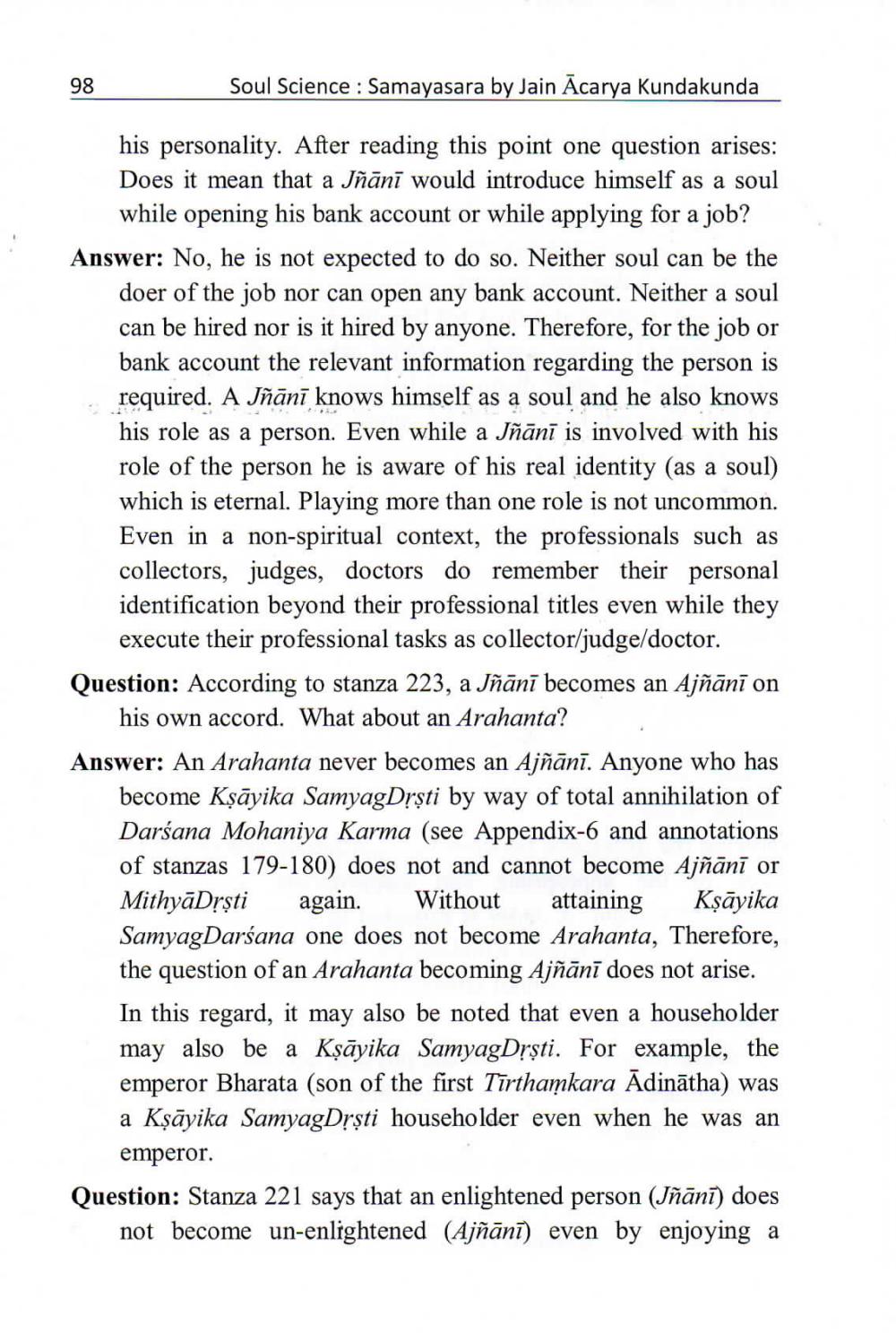________________
98
Soul Science : Samayasara by Jain Ācarya Kundakunda
his personality. After reading this point one question arises: Does it mean that a Jñānī would introduce himself as a soul
while opening his bank account or while applying for a job? Answer: No, he is not expected to do so. Neither soul can be the
doer of the job nor can open any bank account. Neither a soul can be hired nor is it hired by anyone. Therefore, for the job or bank account the relevant information regarding the person is required. A Jñānī knows himself as a soul and he also knows his role as a person. Even while a Jñānī is involved with his role of the person he is aware of his real identity (as a soul) which is eternal. Playing more than one role is not uncommon. Even in a non-spiritual context, the professionals such as collectors, judges, doctors do remember their personal identification beyond their professional titles even while they
execute their professional tasks as collector/judge/doctor Question: According to stanza 223, a Jñānī becomes an Ajñānī on
his own accord. What about an Arahanta? Answer: An Arahanta never becomes an Ajñānī. Anyone who has
become Kṣāyika SamyagDrști by way of total annihilation of Darśana Mohaniya Karma (see Appendix-6 and annotations of stanzas 179-180) does not and cannot become Ajñānī or MithyāDrști again. Without attaining Kṣāyika SamyagDarśana one does not become Arahanta, Therefore, the question of an Arahanta becoming Ajñānī does not arise. In this regard, it may also be noted that even a householder may also be a Kṣāyika SamyagDrști. For example, the emperor Bharata (son of the first Tīrthamkara Adinātha) was a Kṣāyika SamyagDrști householder even when he was an
emperor. Question: Stanza 221 says that an enlightened person (Jñānī) does
not become un-enlightened (Ajñānī) even by enjoying a




